Library
Caliban's War
When was the last time I read a fiction book as quickly as Leviathan Wakes I don’t even remember. Even before finishing it I bought Caliban’s War, which I’m also enjoying very much. But this time I’m reading it on my Supernote.
I started reading it using the Supernote’s ePub reader, but after learning about the amazing BookFusion plugin for Obsidian, I had to install the BookFusion app on my Supernote, and that’s where I’m currently reading it. By the way, a video about all these tech adventures is coming soon.
Leviathan Wakes
I don’t remember what was the last time I couldn’t stop reading a book. Fortunately, when I was reading Leviathan Wakes, the first book in The Expanse series, it was comforting to know that I would be able to keep enjoying more stories set in that universe.
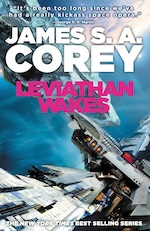
I developed a more in-depth understanding of the characters, and the most delightful aspect of this was that it occurred naturally as I was enveloped in the adventure narrative. It’s time to find out if the next books are as good as this one. However, if you like the TV show, you should probably read at least this first book.
I purchased it in paperback while on a recent trip to Ireland, but I chose to go digital for the second book, Calvin’s War. And I’m not using a Kindle or Kobo device or apps. This reading is |happening in my Supernote.
A Clockwork Orange
I see A Clockwork Orange as part of a group where I also put Do Androids Dream of Electric Sheep, 1984, and others that depict this dystopian future that, for some reason, attracts me.
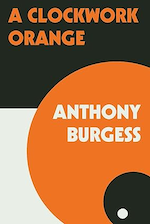
Even though I’m sure it would not be a good experience at all, for some unknown reason, part of me has a secret desire to experience this alternative reality in person. It’s not just the dystopian future that attracts me. I also love the future from the perspective of the 60s.
Back to the A Clockwork Orange book, if you need a tip to use the Nadsat Glossary, I suggest watching this video to learn how I set it up in Obsidian.
The Most Important Journey
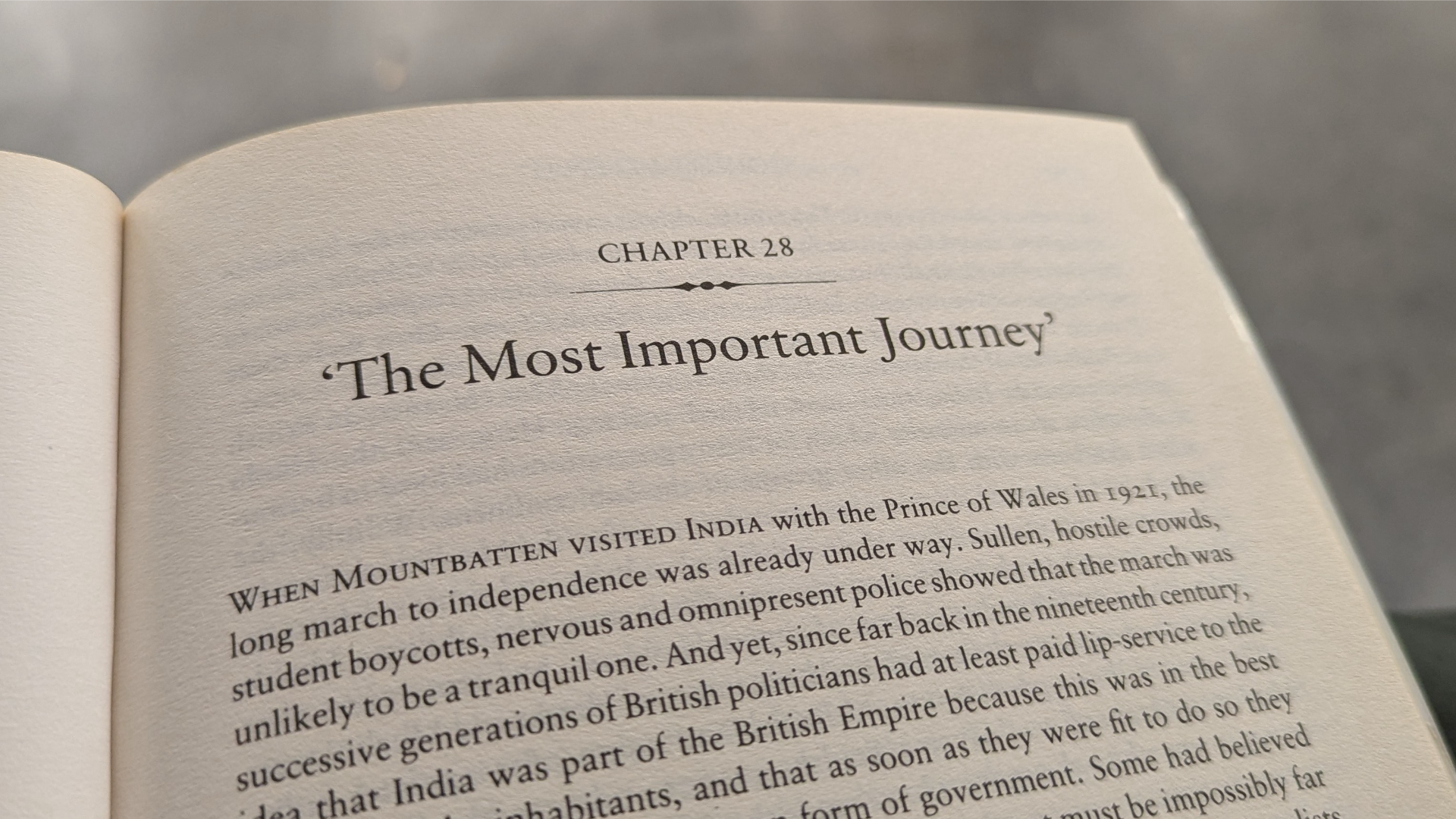
A few days ago, I finally got to the part of this book I wanted to read: India’s independence. I first learned of Mountbatten many years ago, when I was preparing myself for a trip to India and reading everything I could about the subcontinent.
I eventually came across Freedom at Midnight, which is a brilliant book centering on Gandhi’s biography and perspective. Mountbatten’s biography, which is the one I’m reading now, is, of course, based on his perspective. And this is what makes reading both books so unique.
There are other important players in this history, and I hope to learn more about their point of view in the future. For now, I am simply fascinated by what I’m learning from this book, enjoying each new page more than the previews one. To be honest, this moment is what kept me reading it. Even though it is a well-written book, it is also massive and contains so much detail.
In any case, although it was an almost boring read so far, looking back, I now find it invaluable to have learned more about Mountbatten’s personal life and professional trajectory prior to his role in India’s independence. But his participation in the country’s history was definitely what I was looking forward to since the day I started reading this book.
I have always been fascinated by history, which ultimately led me to pursue a postgraduate degree in International Affairs. But what you may not know is that after that I began a Master’s degree program in history. Unfortunately, life had other plans for me and I never finished it.
I’m a huge fan of history because the paths we took as a society in the past explain a lot about the world we live in today. Which also makes me sad because it seems like as a society we often take too long to learn. It appears to be so difficult for our species. We frequently start over again after moving forward.
Anyway, I feel that after this book, it is time to take a break and invest more time into another passion of mine, cognitive psychology. I don’t know if that will make me less sad about humanity, though.
The best productivity and organization books in my library (not what you think)
People often ask me for book recommendations on topics such as productivity and organization, but I can never think of anything to suggest. Instead, I tell them that the books that help me are usually not the traditional ones explaining methods or techniques.
We are all unique and have different needs. Furthermore, we are exposed to such diverse environments. How is it possible that a single method will be effective for everyone? Some authors even claim that, although their method is excellent if fully implemented, you are free to use the parts and processes that best fit you. How convenient is that?
Containers
The way I organize my information is through what I call containers. I have notebooks in Evernote or folders in Obsidian that let me quickly switch from one project or reference material to another whenever I need to or want to do so. And by the way, there’s no archive in my system. Everything is always exposed because that’s where creativity feeds from.
For example, if I’m working on something and have an insight for another project, all I have to do is open the other notebook or folder, take some notes, and then go back to what I was doing before. The cmd + j (Mac) or Ctrl + q (Win) commands on Evernote make it a breeze. Unfortunately, I am still looking for something as efficient on Obsidian.
But if what comes to my mind is entirely new, I will create a new container and decide what to do with it in the future.
I have a video on my organization system coming soon. For now, I suggest you watch the one below to give you an idea of when a new container is created and how it evolves.
When I have reached my limits working on a topic and need a moment or two to relax, switching to another personal or work-related project is what helps me.
I can leave and work on another container because I have all the information and progress in each one. So, when I arrive at the subsequent container or revisit a previous one in the future, everything will be there exactly as I left it.
The Best Books
Let’s get back to the books. The best ones usually have nothing to do with productivity or organization. The more I read about different topics, the more it seems like every book has something that can help me become more efficient. Sometimes, it’s a single sentence, other times a paragraph or two from a 600-page book.
I’m currently reading the biography of Louis Mountbatten, and I came across two strategies that I’ve been using for a while and that I’ve seen mentioned repeatedly in the oddest books and articles.
My System
I learned very early on that I had to take notes to make sure I didn’t forget something. It took me a long time to figure out a system, but when I stopped looking for external solutions and focused on my needs, it all came together.
Creating my own version of a basic CRM with notes about everyone I met was the first thing I did. This happened before Evernote, so I used the description section of each contact on my Palm Pilot to take my notes about the person and each meeting. It was both simple and extremely helpful. People were always amazed at my memory. And every time I told them about my secret, they were even more impressed.
I have never stopped doing it, and the system evolved when I moved to Evernote and then to Obsidian. But what if I told you this idea is as old as time? Take a look at the passage below. Mountbatten was doing the exact same thing in the 1930s.
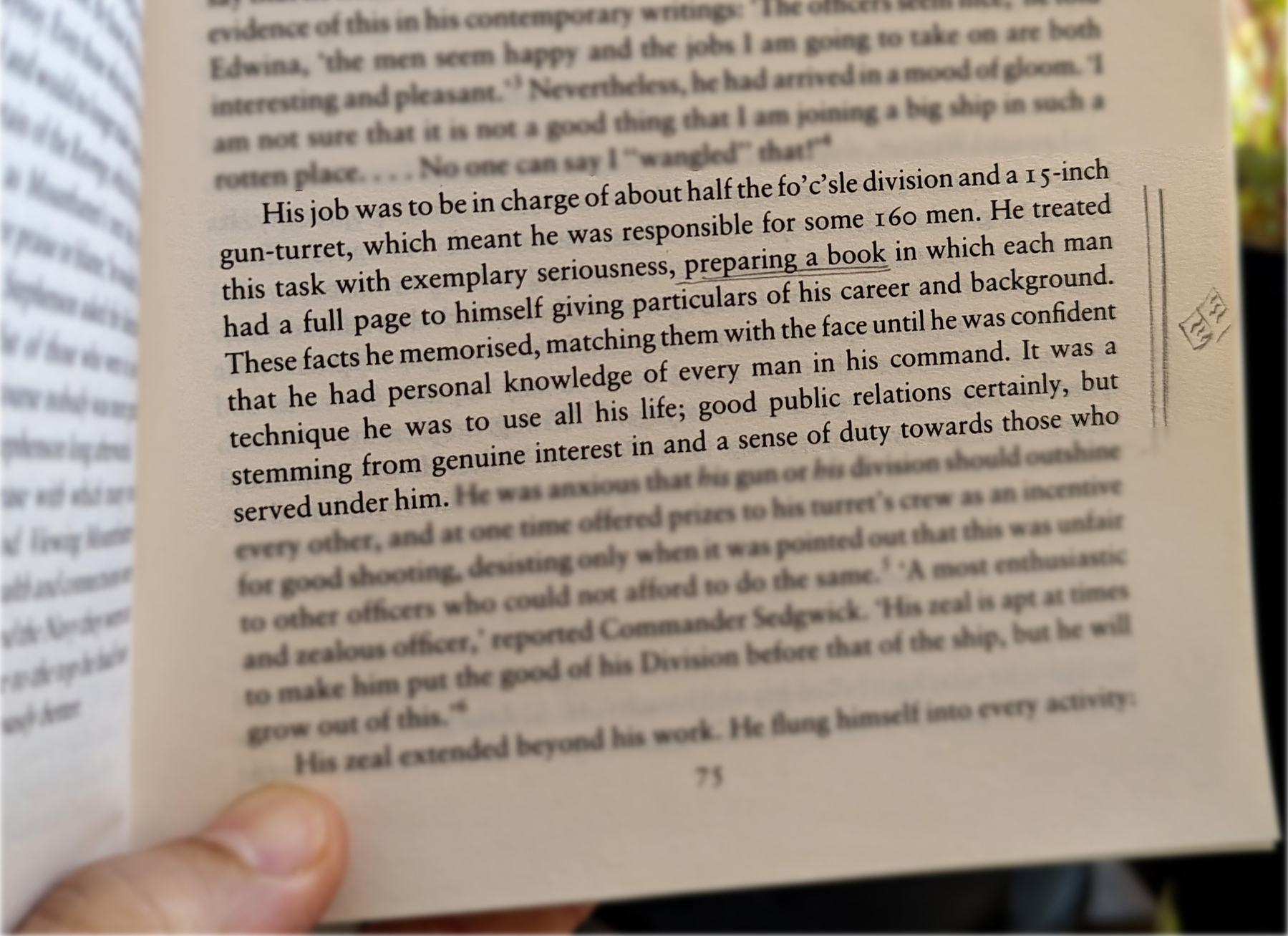
Do you remember my containers with information? Those were also born on my Palm Pilot, but they were in the Memo Pad app. The topics were organized so that I could easily add or find information.
However, it was only when I started using Evernote that I was able to create containers that would allow me to switch from one project or topic to another when I needed to escape exhaustion. Once again, I will soon release a video detailing my approach to managing all the information I keep in these containers. For now, let’s take a look at the other strategy used by Mountbatten.
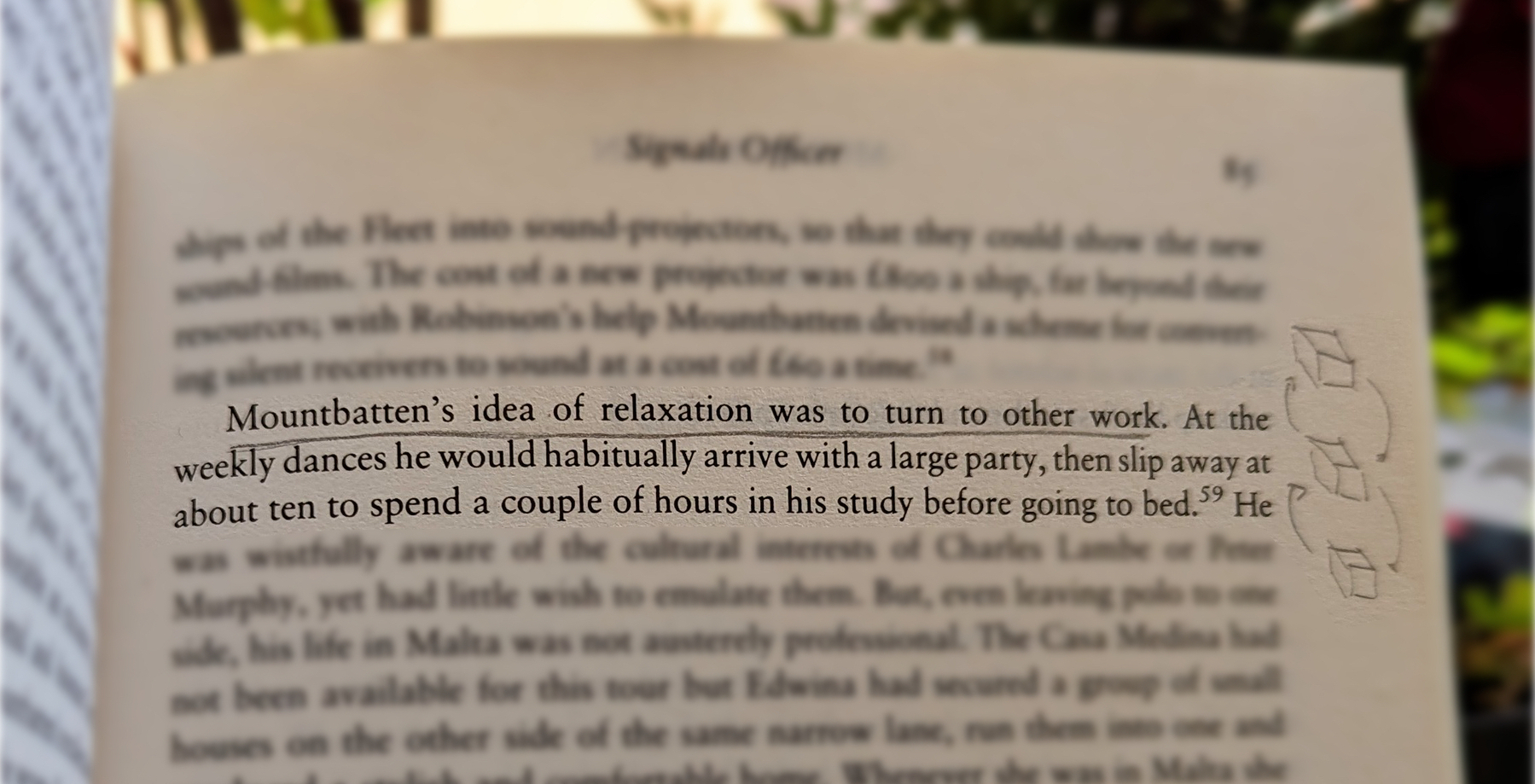
When he needed to relax, he would turn his attention to another project. Isn’t that cool?
Now, who is Mountbatten, you ask? A last-century specialist in organization and productivity? Far from it, but I’ll let you do your investigation on that.
677 pages to go… but every journey starts with the first step, right? Are you looking for inspiration for your next literary adventure? Check my library to see what I am currently reading and some of the books I have read.
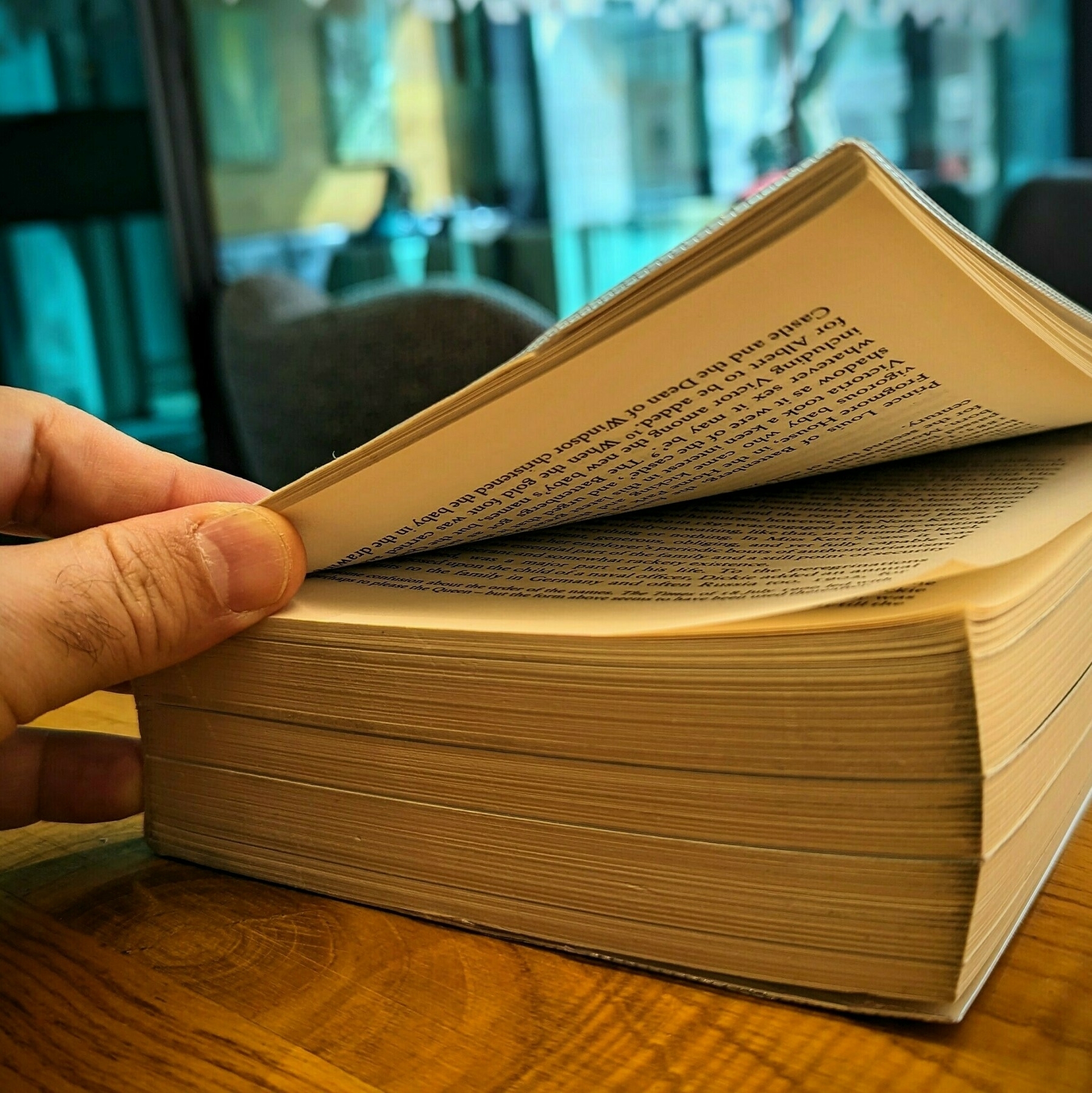
Coincidentally, or should I say incidentally 🤔, a few days ago I started writing my next book.
The first book of 2024
I still prefer eBooks and my Kindle for a multitude of reasons, but bookstores and used bookstores are still the kings of discoverability. I found this one in a random store during my last trip, and I am really enjoying it (affiliate link).
Prisoners Of Geography: Ten Maps That Tell You Everything You Need to Know About Global Politics by Tim Marshall.
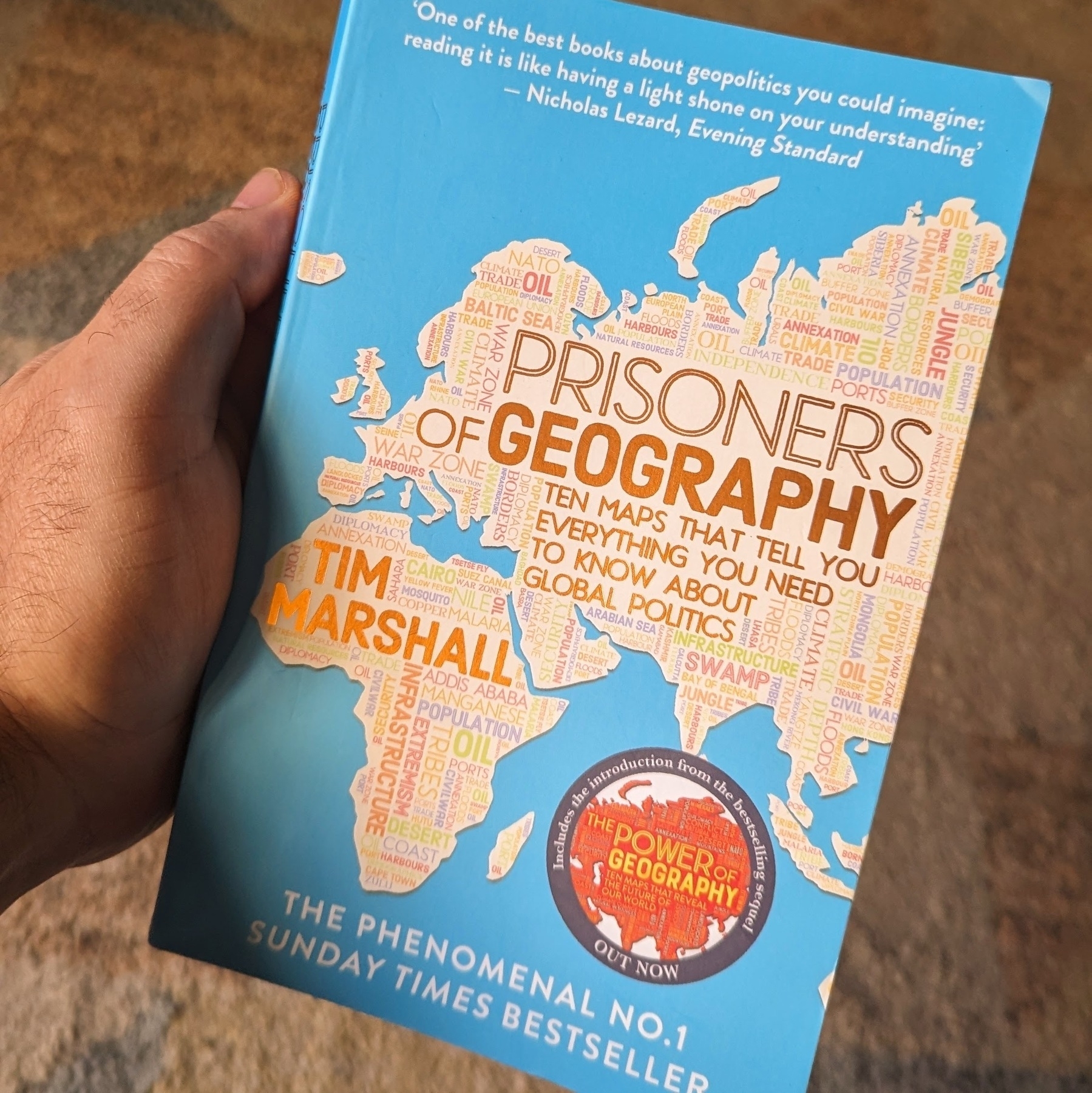
Back to the Source
Revisiting Weaving the Web by Tim Berners-Lee
To give you a sense of how long ago I read the book Weaving the Web, I still had a Walkman lying around, and since I accidentally picked it up in cassette format, that’s how I “read” it. Yes, you got that right: cassette tape.
Regardless, I remember hearing Tim Berners-Lee explain that his original concept for the Web was a more interactive knowledge-building and linking process. I don’t recall his exact words, but this was the idea. At least, this is what my memory tells me. Which reminds me of another great book, Memory Illusion by Dr. Julia Shaw. But I digress.
That stuck with me for a long time because, for many years, all we had were websites with static pages. No interaction at all. It was more like a one-way knowledge flow, but it was a start. Then came the blogs and the comments, but it still didn’t feel like what he meant in his book. When social media started gaining popularity, I thought to myself, Maybe this is it. Well, I was wrong. We ended up with a lot of “islands” and too much misinformation.
I don’t think a Web based on the ActivityPub protocol is precisely what he meant, but connecting all these online “islands” feels to me more like his vision. Another step, if you will.
Anyway, it’s been too long since I read this book, and I’ll use the last week of 2023 to revisit it. It’s a great book! Dr. Shaw’s book is also excellent, but it’s more recent, and I have already read it twice.
That’s it for this one. I hope you have a lovely day!
What Technology Wants
I found “What Technology Wants” by Kevin Kelly a fascinating read because it beautifully connects two of my biggest passions: technology and evolution. The “technium” is this evolving, self-organizing system that represents all technology, past, present, and future.
However, unlike species, which can become extinct, he presents the idea that old tech simply finds new purposes or persists quietly in the background. I loved it because I’m constantly repurposing old tech myself.
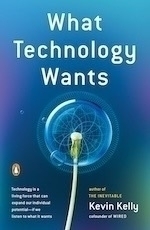
But what blew my mind was the parallel between evolution and technology. He argues that just as natural selection favors solutions best suited to an environment, the technium’s “natural selection” favors technologies that efficiently address human needs. There are several examples in the book of humans in vastly separated regions facing similar challenges and coming up with responses often with similar designs. Just like how diverse species in similar environments develop comparable traits.
By the way, that’s the same argument we use when looking for life on other planets. If we find one with similar conditions to Earth, life there might have evolved in similar ways to what happened here.